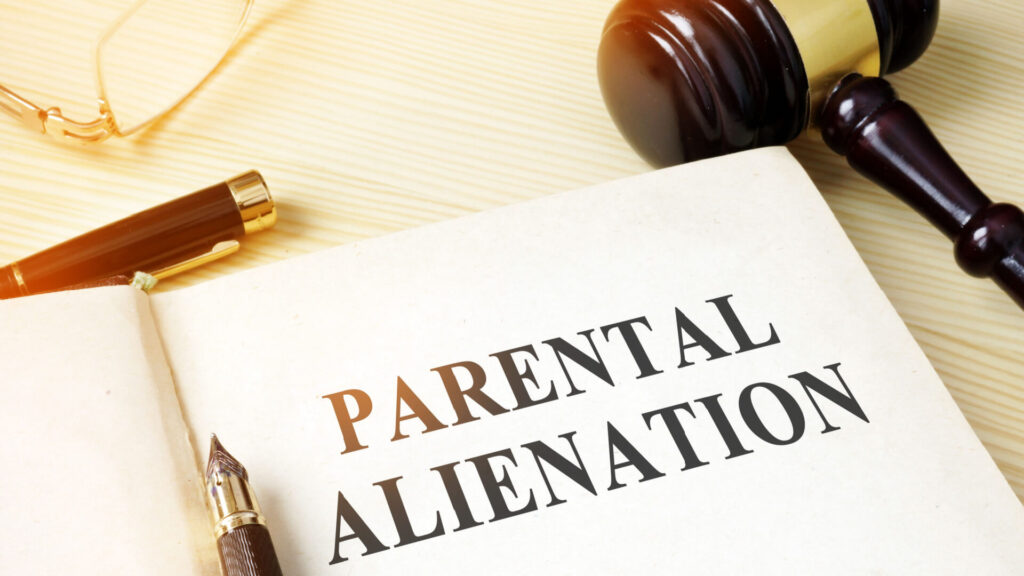You may have heard about parental alienation from a colleague, family member, or friend. If you’re the product of divorce, you may have experienced this first hand. It is a complex and controversial issue that can seriously affect both the child and the alienated parent.
Unfortunately, this issue is far more common than you think. According to the latest research, parental alienation is present in 11% to 15% of divorce cases. Worse still, 20% to 25% of parents engage in alienating behavior as long as six years after divorce. It has led to many custody battles and custody agreement changes years after the original divorce.
As you may have already guessed, alienating parents are such a problem that the court can intervene in some situations. To understand this issue, first, we must answer the question – what is parental alienation?
What Is Parental Alienation?
Parental alienation is a term used to describe a situation where a child becomes estranged or hostile towards one of their parents because of the actions or words of the other parent. In this situation, one parent often intentionally displays unjustified negativity about another parent.
For example, one parent might try to portray the other as a bad person in front of their child, or vice versa. It’s more likely to happen with parents who are separated, divorced, or getting a divorce. But parental alienation can also occur if your relationship is only going through a rough patch.
Although it is prevalent, parental alienation is poorly understood by many. On top of that, this issue often remains hidden behind doors, making it all the more difficult to understand and address.
Understanding the Signs of Parental Alienation
Yes, there are warning signs of parental alienation. They are probably the only way to find out if your child is suffering from the adverse effects of this issue. These signs may vary depending on your child’s age and the severity of your situation.
Here are a few common signs of parental alienation you might see in your child:
- Unjustified Criticism of Alienated Parent: No parent is perfect. So, your child is bound to get mad at you sometimes. They might yell or cry. However, children facing parental alienation will criticize you continuously and for no reason. They will never (or very rarely) speak well about you.
- Unconditional Support for Alienating Parent: Just like criticizing the alienated parent (you) relentlessly, children with parental alienation will support the alienating parent (your spouse or ex) regardless of the situation. They often think of the alienating parent as “all good person” and that of the alienated parent (you) as “all bad parent.”
- Lack of Guilt: Children occasionally lash out, cry, and yell at their parents. But they usually feel guilty afterward and apologize to you. Unfortunately, that’s not the case with children subject to parental alienation. They will feel no guilt about mistreating you or calling you names.
- False Allegations against Alienated Parent: The child dealing with parental alienation frequently makes false or exaggerated claims of abuse or neglect against the alienated parent (you) without substantiating evidence. Overall, they are on a relentless course of name-calling and deprecating the alienated parent (you).
- Spreading Animosity about Alienated Parent: In extreme parental alienation cases, the children may spread hatred about you – the alienated parent, usually to your extended family. So, you might hear something from one of your family members if the situation is indeed out of hand.
- Strange Rationalizations: The children with parental alienation often provide absurd rationalizations when asked why they reject the alienated parent. The answers are usually frivolous, weak, or even strange.
Can I Press Charges for Parental Alienation in Pennsylvania?
As a leading family law attorney, we often face this question. And the short answer is, not per se. Pennsylvania does not have specific laws that allow you to press criminal charges for parental alienation.
However, under Pennsylvania law, you can file a petition for civil contempt against the parent who doesn’t comply with a custody order. You can even sue to have a change in the custody agreement so you can work to repair your relationship with your child. With the help of an experienced parental alienation attorney, you can consider the following:
- File a motion with the court to modify your child custody agreement or parenting plan.
- Seek a court order for therapy or counseling for your child and the other parent.
- In a few cases, the court may appoint a guardian ad litem or a custody evaluator to investigate the situation further. The court will make recommendations based on its investigation. Rest assured, they will always keep the best interests of your child in mind. Your parental alienation lawyer can shed more light on the issues once they know your situation.
Moreover, the court can impose sanctions, including fines or even jail time, against a parent who willfully violates a custody order or interferes with the other parent’s custodial rights. Parental alienation can become violations of a parent’s custodial rights if it becomes severe enough.
But you will need to prove that the other parent’s actions intentionally interfere with your custodial rights. If you succeed, you may be able to pursue legal action to hold them accountable. Again, it’s best to consult a parental alienation lawyer first.
Contact the Parental Alienation Lawyer at Kalinoski Law Offices Immediately
You will want to address parental alienation as soon as possible, as it can negatively impact your children. However, this is often a complex issue. The challenges involved in handling this issue are rarely a breeze. But, consulting an experienced parental alienation attorney can increase the odds of finding a reasonable solution.
If you are looking for a parental alienation lawyer, look no further than Kalinoski Law Offices. Attorney Craig Kalinoski will help you every step of the way. Contact us today to schedule your consultation.
